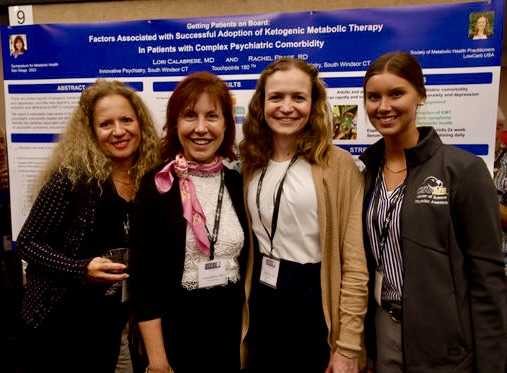
Have you ever felt like you were drinking from a fire hydrant? Where the supply was so abundant you were overwhelmed at even trying to take it in? This is an understatement for the Symposium for Metabolic Health in San Diego hosted by LowCarbUSA with the Society of Metabolic Health Practitioners, August 17-20. Without question, this is one of — if not the — most powerful and informative conferences I’ve ever attended. Its impact on the care that we provide our patients has been extraodinary.
So much of the value in the vast amounts of information, data, and research results that were shared, was in the depth of the science described and communicated by each speaker. The reasons that these strategies work.
If I were to attempt to explain everything we heard at the Symposium for Metabolic Health, this blog would be 50 pages long! So while I hit a few of the highlights, know that what is here only scratches the surface from a throng of scientists and clinicians. Brilliant, dedicated professionals who delve into the biology and chemistry of life-changing strategies to restore health — and improve life — one person at a time through low carb and ketogenic interventions.
The first day of the conference was dedicated to exploring ketogenic strategies in the treatment of cancer.
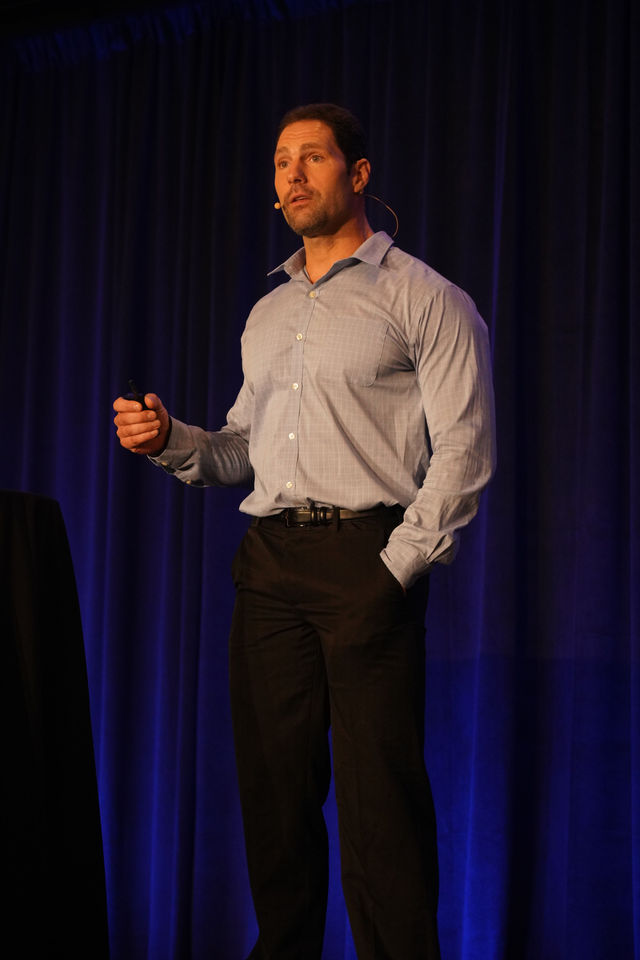
Dominic D’Agostino, PhD talked about hyperbaric oxygen therapy, and how oxygen under increased barometric pressure can oxygenate a tumor and killl it from the inside out with oxidative stress.
The Warburg Effect — tumors consume tremendous amounts of glucose compared to normal tissues, and the majority of glucose consumed by tumors is fermented to lactate.
Tumor growth increases in relation to the amount of glucose in the blood.
Ten years ago, there were 6 studies using a ketogenic diet in the treatment of certain cancers. Today, in August 2023, there are 62! Research is growing, and we’re learning more effective strategies to induce therapeutic ketosis effectively against some of the most aggressive and deadly tumors, like glioblastoma, a form of brain cancer.

Nasha Winters, ND FABNO, talked about the impact of light on our metabolic health and how well our red blood cells receive light.
She says we are living solar panels, and the red light we receive can penetrate our mitochondria. Light is the same as food for our cells. Photodynamic therapy uses a drug that serves as a photosynthesizer in the patient. Then, when the patient is exposed to light, the photosynthesizer makes a form of oxygen that can kill cancer cells.
For example, niacin.. or niacinamide … is a possible photosynthesizer.

Next up, Anthony Chaffee, MD spoke at this Symposium for Metabolic Health about the Metabolic Theory of Cancer. He pointed out that there are cancer driver genes in normal cells as well as malignant ones. And that cancer is rare in wild or properly fed zoo animals. In fact, there are no reports of breast cancer in chimpanzees. So why is that?
Warburg’s Metabolic Theory of Cancer says that cancer arises due to damage to respiration in the cell. Cancer cells continue to ferment lactate in the presence of oxygen, and enhanced fermentation is the signature metabolic malady of all cancer cells. Since cancer cells need 400 times more glucose than normal cells, depriving them of glucose is a death sentence to cancer cells.
Cancer cells cannot ferment ketones for energy. So, if ketones are increased, and glucose is reduced, then the lower glucose makes cancer cells unable to grow, while normal cells are unaffected.
Regarding brain tumors, the more ketones available in your brain, the more your brain will run on ketones. Why? Because it will choose ketones over glucose when ketones are available.
For example, a glioblastoma is the most aggressive malignant brain tumor. If you leave it untreated, most people will have a prognosis of 3 months. With traditional treatment removing it surgically, combined with radiation, you may have 15 to 18 months. Long story short, this diagnosis is not survivable with traditional treatment. It’s such defeating news for patients to hear. So they ask, “What can I do?”
So, Dr. Chaffee then explains to his patient how a therapeutic ketogenic diet combined with strategic fasting can starve cancer cells in the brain.

A full-time clinical neurologist in New Zealand, Matthew Phillips, FRACP stressed that a person needs hope, but hope alone isn’t enough. That person also needs a plan, not just in terms of “how”, but also he needs to know “why.”
Currently, the Standard of Care includes surgery, radiation, and chemotherapy, not necessarily in that order.
But metabolic strategies are methods that induce physiological ketosis. These include prolonged fasts, intermittent fasts, and ketogenic diets very high in fat, with adequate protein, and very low in carbohydrates (ideally, free of processed foods.)
He described a case study. This woman received a diagnosis of a metastatic thymoma (a malignant tumor of the thymus gland). They treated her with a prolonged 7 day fast every 1-2 months, using a ketogenic diet in between fasting times. The tumor shrank. After a time, she relaxed the ketogenic diet to some degree, and the tumor grew again. So she returned to the ketogenic diet, and now six years later, the tumor has regressed 95% with no other treatment.
The rest of this symposium was chock-full of digestible chunks of metabolic health and healing…

Jayne Bullen, PhD, talked about the Gut-Brain connection. She described how the enteric nervous system has between 100 and 500 million neurons, which is the largest collection of neurons in the human body, outside the brain. This is why we call it the “second brain.”
The gut represents the largest surface area exposed to the external environment. The length of your GI system (from mouth to anus) is 30 feet. That’s a lot of surface area! And what’s surprising is that 90% of your serotonin, that beloved neurotransmitter that helps you feel right with the world, is located there!
The GI tract contains the largest population of microorganisms in the human body. That ecosystem is comprised of microorganisms, including bacteria, fungal and arachaea, or single-celled organisms.
This system knows when you’re stressed and reacts to how you feel. You can’t differentiate your digestive health from your mental health. They’re intertwined. So a happy gut co-exists with a happy brain, and by the same token, digestive issues can lead to problems with mood or behavior.
And she discussed how 90% of diseases originate and are related to this microbiome.
So about the vagus nerve. It’s a critical part of the parasympathetic nervous system, which soothes the sympathetic nervous system after it has activated the flight or fight response. When the vagus nerve activates, blood flows and you can rest…and digest food.
The vagus nerve controls digestion, heart rate, swallowing, and even your immune response. Also it contributes to spitting, vomiting, coughing, and sneezing. So with that in mind, when the vagus nerve is quiet, and the sympathetic nervous system is activating flight or fight, you can’t digest food well.
So during this response, you should not be eating. The vagus nerve needs to quiet this response so you can rest and digest.
She reports that within 2 years of developing Type 2 diabetes, most of her patients had suffered trauma.
She stresses that human beings need to not eat when they’re stressed. They’re the only mammal on earth who does eat when they’re in an activated/sympathetic state. Their gut knows that when they’re in a sympathetic excited state, they cannot digest food; they should not be eating.
She recommended an excellent article about this: Vagus Nerve as Modulator of the Brian-Gut Axis in Psychiatric and Inflammatory Disorders published in Frontiers in Psychiatry.
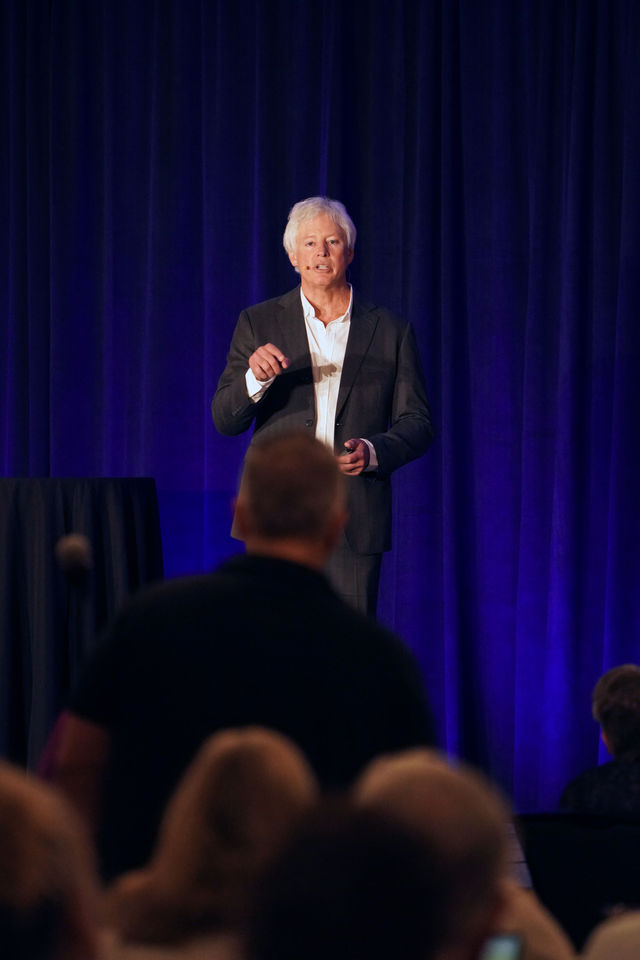
Chris Knobbe, MD spoke on the apocalypse of vegetable oils and omega 6. He emphasized that vegetable oils are chronic biological poisons. He says we keep supplementing our animal fats with vegetables oils and we keep getting fatter and sicker.
Omega 6 is linoleic acid (LA). Native populations consume less than 2% of their fats as LA, whereas western diets today consume 7-12% of their fats as LA.
They are pro-oxidative, pro-inflammatory, toxic, and nutrient deficient, and put this together: it is the ultimate recipe for metabolic disease and physical degeneration.
He mentioned a review of the Maasai group of western Tanzania:
They eat a diet of milk, meat and blood: 3000 kcal/day diet, 66% animal diet until 34, 40—46% saturated animal fat, and it is the highest fat diet in the world, but they have no heart disease. Most importantly, they have no vegetable oils.
He talked about how the real culprit causing obesity and Type 2 diabetes is not sugar but seed oils. He said the sale of sugar has been falling since 2004, but obesity is rising. Since 1997, carbohydrate consumption has steadily declined and sugar consumption leveled off in 2016, but diabetes has increased 35 fold.
In 1965, omega 6 (LA) consumption was 1.1%. By 2008, it had increased 10000%, which is 11-fold.
His declaration is that to be disease free, be seed oil free.
I wish I could go on and on, sharing all I heard and learned from all the spectacular and knowledgeable speakers at this Symposium for Metabolic Health. (But I’d go on too long and you wouldn’t have time to read it all, anyway!)

About Brenda Lennerz, MD, PhD, who talked about Type 1 diabetes in children, and the unique risks of a ketogenic diet in these patients, the contrast between ketosis and ketoacidosis, the first being physiological and the other being pathological.

About Robert Cywes, MD, PhD, and fitness vs. fatness, insulin resistance in heart disease, sudden cardiac death in people with diabetes, and the danger of excessive consumption of sugar and carbohydrates…a ketogenic low carb high fat diet and physical exercise restores insulin sensitivity, treats obesity and Type 2 diabetes, and reduces risk of cardiovascular disease.

And about Joe Wortman, MD, who was vegan for 17 years and still developed Type 2 diabetes, so he switched to a ketogenic diet.

About Tony Hampton, MD, who talked about 15 lessons why vegans and carnivores should live in harmony! Great points!

And about Stephen Phinney, MD, PhD, who talked about low carb, keto, or nutritional ketosis, and how most humans can safely live with a low carb diet for decades. He explained the difference in ketone levels with these nutritional approaches, compared to the pathologically high ketone levels in ketoacidosis.

and Mr. BenBo (Ben Bocchicchio), fitness pro bar none and author of Metabolism at a Glance, who talked about how, “exercise is working all of the muscle fiber types to a point of failure, to a point of threshold, so that we can activate all of these metabolic pathways.” Great and very practical talk about exercise and metabolism.
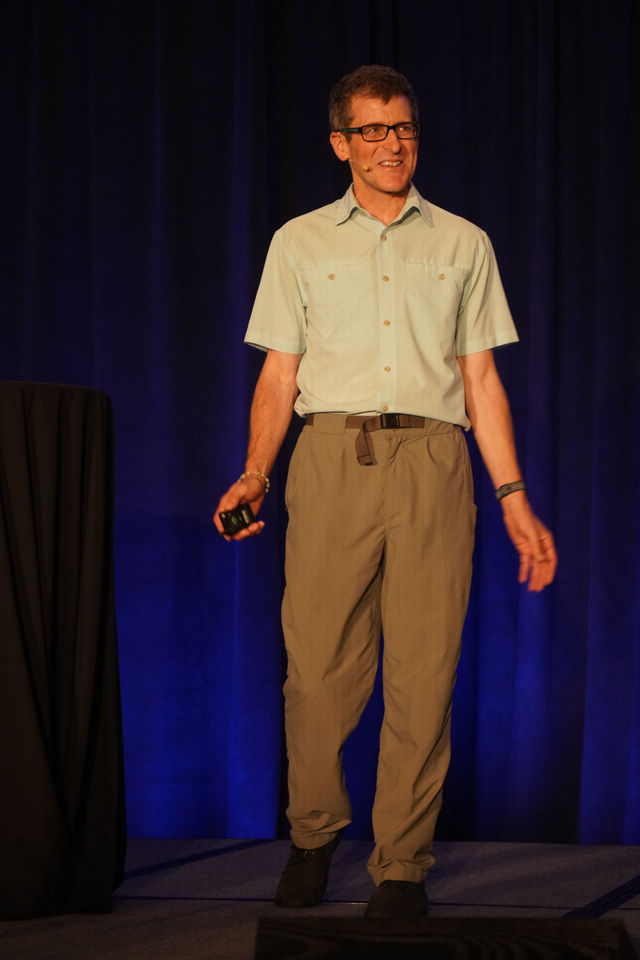
…And of course, Mark Cucuzzella, MD a powerhouse whom I love listening to, speaking about the pathophysiology of coronary artery disease. He shared the beauty of a CAC, a Coronary Artery Calcium score — a $99 CT scan test that can measure the actual plaque in your coronary arteries. It blows away anything else they do in preventive cardiology looking at cholesterol..
And I’m still just scratching the surface. There were so many who invested their time to teach so much and so many volunteers and sponsors who made it all possible! The talks, the groups, the exhibits, the break-outs, the chats in between… the new friends we made, the volunteers, the delicious dinners. Doug and Pam Reynolds are the superpowers who put this together. Thank you!
At the top of this post, you can see us with friends in front of the research poster we presented from our Metabolic Psychiatry practice describing our results with Ketogenic Metabolic Therapy in Patients with Complex Psychiatric Comorbidity.
I couldn’t resist bringing you these little nuggets. Keep checking back as we discuss more concepts brought forward during this conference. The impact on health and longevity using ketogenic nutritional interventions for metabolic and psychiatric illness is staggering, and full of hope for your future.
If you suffer with psychiatric symptoms, if your metabolism is off, if you can’t lose the weight you’ve gained along the way, and you’re sick of it, call us.
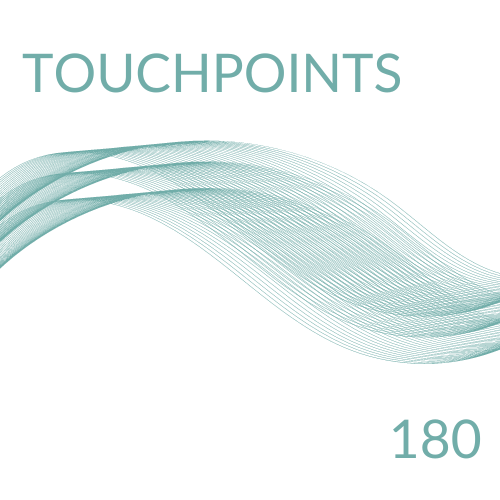
Touchpoints 180™
We can introduce you to our Touchpoints 180TM program, and the possibilities for your dramatic health improvement.
Check out our new TikTok account @loricalabresemd as well as our Instagram reels!

To the restoration of your best self,

We’re sharing this in our newsletter this week, Thank you so much for highlighting the Symposium, and your words about how you feel this could be one of the best, if not THE best conference!! That sure means the world to us, as we know you must attend many conferences Lori! Thank you to both you, and Rachel, for your participation and attendance!!
So happy to hear you’re sharing this. I do go to a lot of conferences (national and international ones)–always learning, always wanting cutting edge information that I can bring back to my patients. I really valued the expertise of your speakers, the opportunities for deep learning, questions, break-outs, and long conversations in the evenings. Here’s how good it was: we stayed even though there was a hurricane on its way to San Diego!
Ps, a couple of weeks ago, you may have seen, but just in case you may have missed the announcement, Next year’s Symposium for Metabolic Health San Diego 2024 will have a special full daylong session dedicated to discussions and research into metabolic therapies for Mental Health. So right up your alley Dr Lori Calabrese and Rachel Frase RD!!
We’re on it! Thanks again for all you’re doing to bring metabolic health to so many!